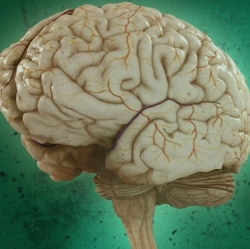
A five-year old’s brain is an energy monster. It uses twice as much glucose (the energy that fuels the brain) as that of a full-grown adult, a new study led by Northwestern University anthropologists has found. The study helps to solve the long-standing mystery of why human children grow so slowly compared with our closest animal relatives.
It shows that energy funneled to the brain dominates the human body’s metabolism early in life and is likely the reason why humans grow at a pace more typical of a reptile than a mammal during childhood. Results of the study will be published the week of Aug. 25 in the journal Proceedings of the National Academy of Sciences.
"Our findings suggest that our bodies can’t afford to grow faster during the toddler and childhood years because a huge quantity of resources is required to fuel the developing human brain," said Christopher Kuzawa, first author of the study and a professor of anthropology at Northwestern’s Weinberg College of Arts and Sciences. "As humans we have so much to learn, and that learning requires a complex and energy-hungry brain."
Kuzawa also is a faculty fellow at the Institute for Policy Research at Northwestern. The study is the first to pool existing PET and MRI brain scan data, which measure glucose uptake and brain volume, respectively, to show that the ages when the brain gobbles the most resources are also the ages when body growth is slowest. At 4 years of age, when this "brain drain" is at its peak and body growth slows to its minimum, the brain burns through resources at a rate equivalent to 66 percent of what the entire body uses at rest.
The findings support a long-standing hypothesis in anthropology that children grow so slowly, and are dependent for so long, because the human body needs to shunt a huge fraction of its resources to the brain during childhood, leaving little to be devoted to body growth. It also helps explain some common observations that many parents may have.
"After a certain age it becomes difficult to guess a toddler or young child’s age by their size," Kuzawa said. "Instead you have to listen to their speech and watch their behavior. Our study suggests that this is no accident. Body growth grinds nearly to a halt at the ages when brain development is happening at a lightning pace, because the brain is sapping up the available resources."
